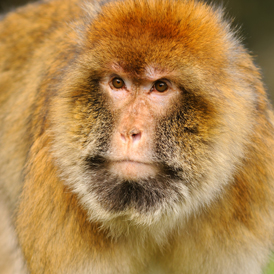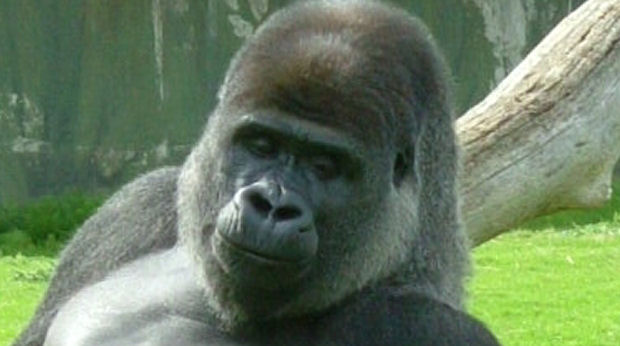Monkeys ‘anxious’ over human behaviour
Scientists studying an endangered species of monkey have found that basic human behaviours could be threatening their future. One scientist tells Channel 4 News the findings are a “real worry”.

It is thought there are fewer than 6,000 Barbary macaques left in the wild. They are found mainly in mountainous regions of Algeria and Morocco.
Every year thousands of tourists from around the world visit monkeys in the wild, including the Barbary macaques in Morocco.
British based scientists, who have been studying the monkeys’ response to human behaviour, have found that the primates’ anxiety levels rise even in response to non-threatening human behaviour.
Just like humans, Barbary macaques show a range of nervous behaviours, such as scratching themselves, when they are anxious. The scientists found that increased scratching correlated with a range of human behaviours including talking and taking photos.
Read more: 'Chimp urinating is scientifically interesting'
They also examined the animals’ faeces for stress hormones but found that only aggressive human behaviour, which can happen when people are feeding the monkeys, elicited a physiological response.
‘A real worry’
The research was led by Ms Laëtitia Maréchal and Dr Stuart Semple of the University of Roehampton.
Ms Maréchal said the study did not bode well for the species’ survival: “Our findings are of particular concern as stressed monkeys are more vulnerable to disease, and their reproduction can also be affected.
“The Barbary macaque has recently been declared an endangered species…anything that threatens those that remain is a real worry”.
Dr Stuart Semple told Channel 4 News they were “surprised” that even baseline behaviour affected the monkeys.
He said the findings should encourage stricter rules for tourists visiting monkeys in the wild: “There should be guidelines like banning people from feeding animals and making sure they stay back a certain distance.
“That way you’re going to make the experience less negative for animals and evidence shows that leads to a better experience for tourists too.”
But he added that visiting monkeys in the wild should not be banned: “Primate tourism is a fast-growing business with huge potential conservation benefits, generating local income and providing an economic incentive to protect animals and their habitats.
“Research like ours highlights the importance of understanding the impact of tourist behaviour, so that we can ensure the experience is a good one both for the visitors and the animals.”
More on primates
-

A gorilla that walks like a human becomes internet celebrity
27 January 2011
-

Africa chimp smuggling: conservationists call for action
01 April 2011

